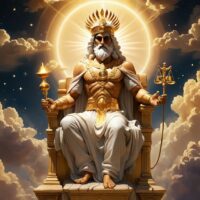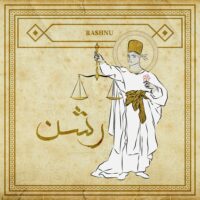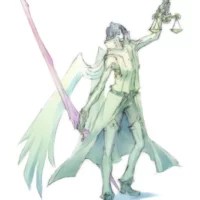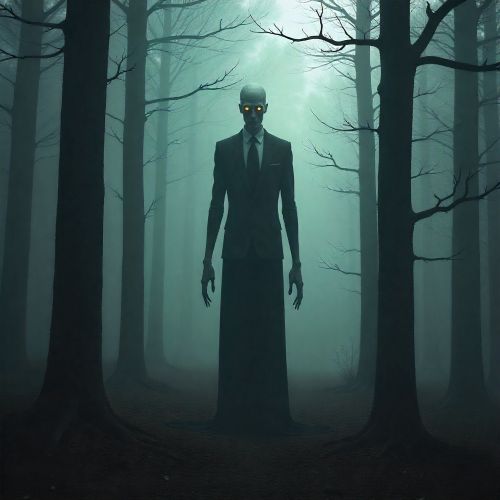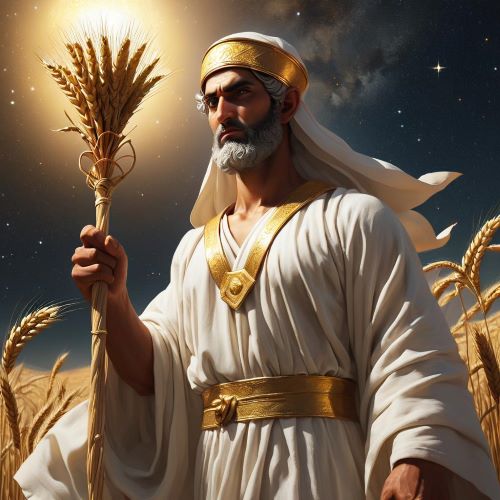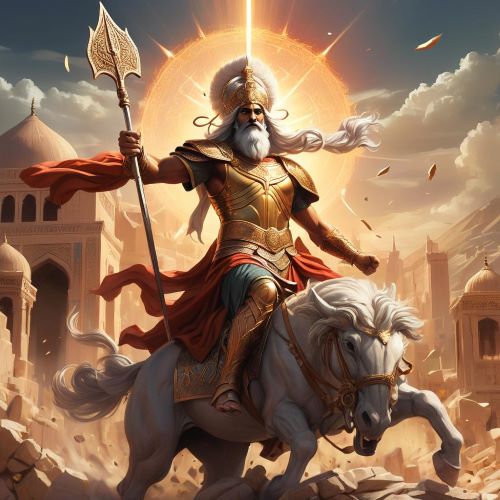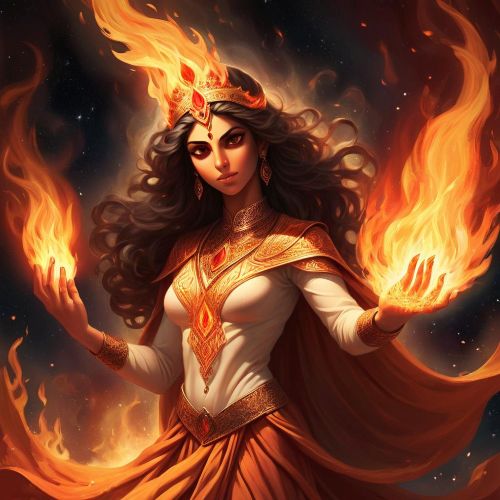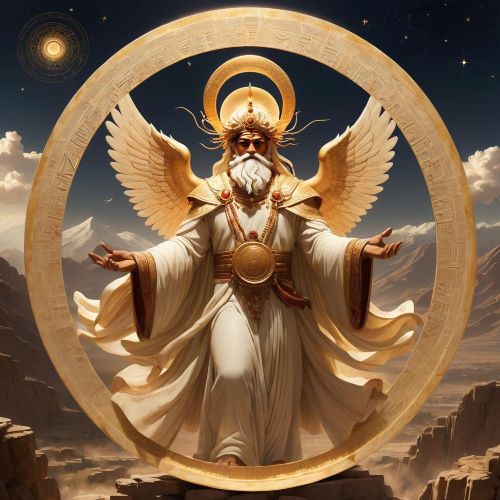Rashnu : God of Justice
Listen
At a glance
| Description | |
|---|---|
| Origin | Iranian Mythology |
| Classification | Gods |
| Family Members | N/A |
| Region | Iran |
| Associated With | Judgement, Afterlife |
Rashnu
Introduction
Rashnu is a key figure in Iranian mythology and Zoroastrianism, revered as the divine judge who upholds justice. As part of a triad with Mithra, the god of truth, and Sraosha, the deity of religious obedience, he plays a crucial role in determining the fate of souls after death. His presence in the Avesta highlights his significance in maintaining cosmic order and reinforcing ethical conduct. The Zoroastrian calendar honors him on the 18th day of each month, reflecting his enduring importance in the faith’s moral and spiritual framework.
Physical Traits
Zoroastrian texts provide little detail about Rashnu’s physical appearance, focusing instead on his role as a divine judge. Rather than a vividly depicted figure, he is envisioned as an ethereal presence embodying justice and fairness. Middle Persian sources associate him with golden scales, a powerful symbol of his impartiality in weighing the deeds of souls. In artistic and poetic traditions, Rashnu is portrayed as a serene yet authoritative figure, radiating righteousness and moral clarity, reinforcing his role as the unwavering arbiter of truth.
Family
Rashnu’s familial connections are not explicitly detailed in Zoroastrian scriptures, but his close association with Mithra and Sraosha defines his role within the divine order. As part of this judging triad, he ensures that souls are fairly assessed based on their earthly deeds. While Mithra oversees truth and Sraosha represents obedience, Rashnu’s task is to weigh actions on his golden scales, delivering an impartial verdict. His function within the Zoroastrian pantheon aligns him with Ahura Mazda’s mission to uphold cosmic order, reinforcing the deep ties between justice, truth, and divine judgment.
Other names
Rashnu’s name, derived from Avestan, means “just” or “straight,” symbolizing his unwavering dedication to truth and fairness. He is often called “the very straight,” emphasizing his role as an impartial judge. In Middle Persian, his name appears as Rashn, while other variations include Rashnau, Rashnaw, and Rasan. The title Rashnu Razishta, meaning “Rashnu the Most Truthful,” further reinforces his deep association with justice. These variations across different texts and eras highlight his enduring significance in Iranian mythology and Zoroastrian tradition.
Powers and Abilities
Rashnu’s power lies in his role as the divine arbiter of souls, ensuring justice with unwavering precision. Stationed at the Chinvat Bridge, he weighs each soul’s deeds on his golden scales, determining whether they ascend to paradise or face the consequences of their actions. His incorruptible nature makes him the ultimate symbol of fairness. Beyond judgment, Rashnu serves as a guardian of truth, detecting deception and upholding moral law. His presence reinforces the Zoroastrian ideal of asha, reminding all of the importance of righteousness in both life and the afterlife.
Modern Day Influence
Although Zoroastrianism is no longer a dominant religion, its core values—truth, justice, and righteousness—continue to shape Iranian culture and ethical thought. Rashnu’s role as the divine judge has influenced broader religious traditions, including Islamic beliefs about the afterlife and the idea of a bridge leading to heaven. His presence persists in literature, art, and philosophical discourse, where his symbolism inspires discussions on morality and fairness. Additionally, modern Zoroastrian communities and cultural organizations work to preserve and share these teachings, ensuring that Rashnu’s legacy remains a guiding force in ethical and spiritual traditions.
Related Images
Source
Gnoli, Gherardo. “RASHNU.” Encyclopaedia Iranica, vol. 2, Fasc. 4, pp. 344-345. Available online at iranicaonline.org.
World History Encyclopedia. Ancient Persian Gods, Heroes, and Creatures – The Complete List.
World History Encyclopedia. Ancient Persian Mythology.
World History Encyclopedia. Twelve Gods of Persian Mythology.
Boyce, Mary. Zoroastrians: Their Religious Beliefs and Practices. London: Routledge, 2001.
Avesta.org. “The Avesta: Zoroastrian Archives.” Accessed March 2025. www.avesta.org.
Frequently Asked Questions
What is lorem Ipsum?
I am text block. Click edit button to change this text. Lorem ipsum dolor sit amet, consectetur adipiscing elit. Ut elit tellus, luctus nec ullamcorper mattis, pulvinar dapibus leo.
What is lorem Ipsum?
I am text block. Click edit button to change this text. Lorem ipsum dolor sit amet, consectetur adipiscing elit. Ut elit tellus, luctus nec ullamcorper mattis, pulvinar dapibus leo.
What is lorem Ipsum?
I am text block. Click edit button to change this text. Lorem ipsum dolor sit amet, consectetur adipiscing elit. Ut elit tellus, luctus nec ullamcorper mattis, pulvinar dapibus leo.
What is lorem Ipsum?
I am text block. Click edit button to change this text. Lorem ipsum dolor sit amet, consectetur adipiscing elit. Ut elit tellus, luctus nec ullamcorper mattis, pulvinar dapibus leo.
What is lorem Ipsum?
I am text block. Click edit button to change this text. Lorem ipsum dolor sit amet, consectetur adipiscing elit. Ut elit tellus, luctus nec ullamcorper mattis, pulvinar dapibus leo.


